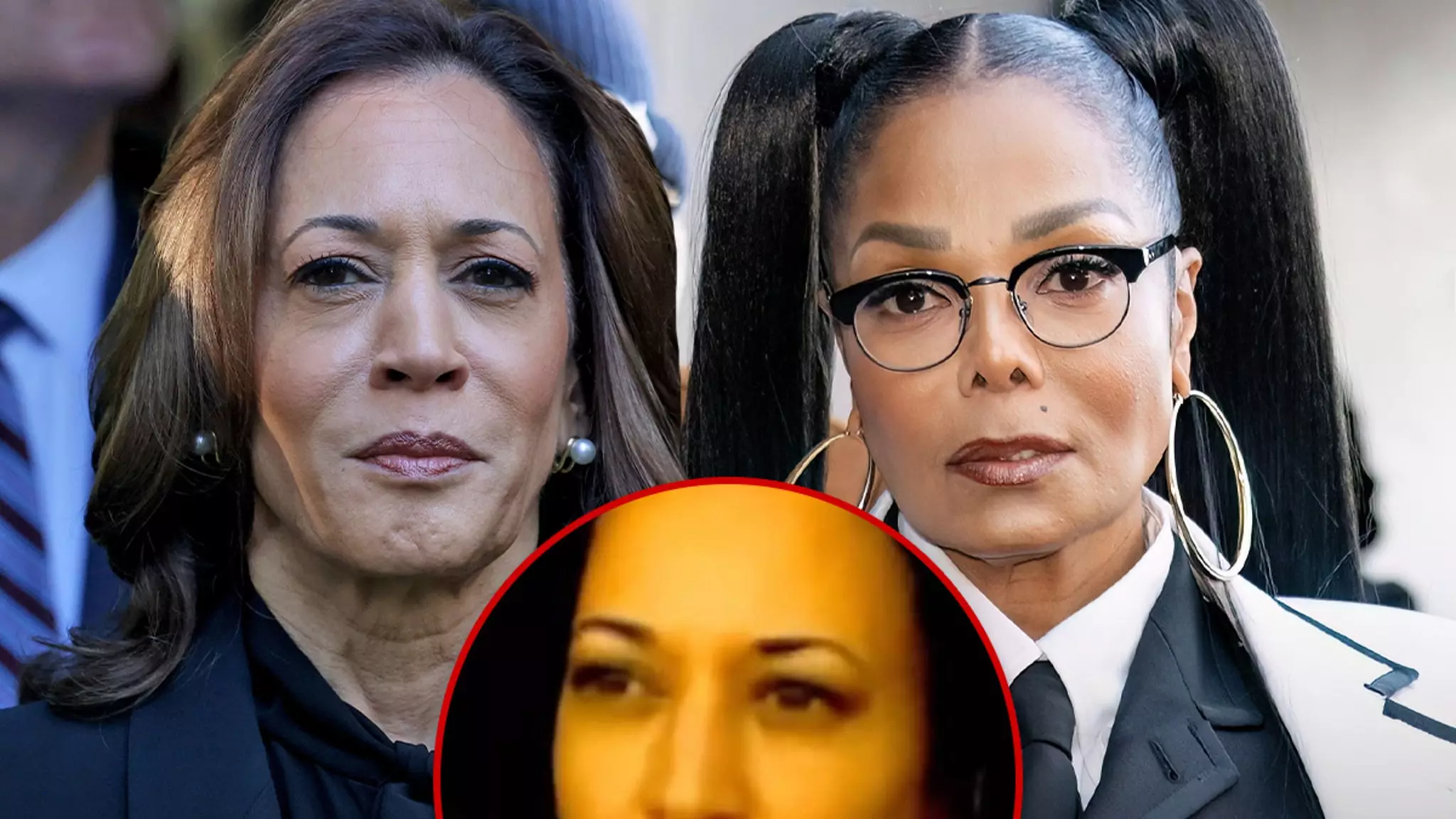The ongoing tensions between Janet Jackson and Vice President Kamala Harris appear to have deep historical roots that extend beyond the current presidential campaign. Recently, old footage of Harris sharing her thoughts on Michael Jackson’s controversial child molestation trial has stirred public discourse. These resurfaced comments have fueled Janet’s criticism of Harris, unveiling a larger narrative surrounding race, celebrity, and public biases.
In 2003, Michael Jackson was implicated in a series of serious legal allegations, including multiple counts of child molestation. His arrest marked a high-profile trial that polarized public opinion. During this time, Kamala Harris, then a Deputy City Attorney in San Francisco, provided commentary on the case. She suggested that a child’s recollection could hold significant weight in a jury’s deliberation, an assertion rooted in legal expertise but also one that ignited a public relations backlash for its implications. Michael Jackson steadfastly denied all allegations, and in 2005, he was acquitted of all charges. Understanding these events is crucial for comprehending the animosity Janet now exhibits towards Harris.
Janet Jackson’s recent critique of Harris included an erroneous claim regarding the Vice President’s racial background, inaccurately suggesting that Harris’s father was white. This misrepresentation raises numerous questions about Janet’s motives. In an age where misinformation can rapidly spread, particularly in politically charged environments, the need for accurate discourse is paramount. Janet’s insistence on perpetuating false narratives not only undermines her credibility but also distracts from legitimate conversations on race and representation in politics.
Comparative Reactions: Janet Jackson vs. Donald Trump
Interestingly, Donald Trump’s approach to Michael Jackson’s legacy starkly contrasts Janet’s critiques of Harris. Trump—who often drew on his background in entertainment—has publicly defended Jackson’s character, even amidst serious allegations. This divergence showcases a complex relationship between race and celebrity culture. While Jackson seeks to discredit Harris, Trump’s comments echo broader themes about race and political opportunism, including his controversial assertion that Harris “happened to turn Black” for political gain. Such remarks serve to reinforce negative stereotypes that haunt figures in the public eye, particularly women of color.
Kamala Harris’s upbringing in a multicultural environment, being the daughter of immigrant parents from India and Jamaica, offers a profound contrast to the narratives spun by both Jackson and Trump. It is essential to contextualize Harris’s identity within the broader scope of American politics, particularly as a woman of color who has shattered numerous glass ceilings. Her silence on Janet’s allegations may reflect a strategic choice to elevate the discourse rather than engage in personal attacks, thus maintaining her focus on pressing national issues.
At its core, the exchanges between Janet Jackson and Kamala Harris highlight the necessity for constructive dialogue rather than divisive rhetoric. The political landscape, especially within marginalized communities, requires introspection and accountability. Misguided narratives only serve to deepen divisions rather than build bridges. In a society striving for equality and understanding, figures in the limelight, such as Jackson and Harris, must navigate their roles with care, promoting truth over sensationalism. Ultimately, it is through enlightened discussions that lasting change can occur, inviting healing rather than perpetuating conflict.

Leave a Reply